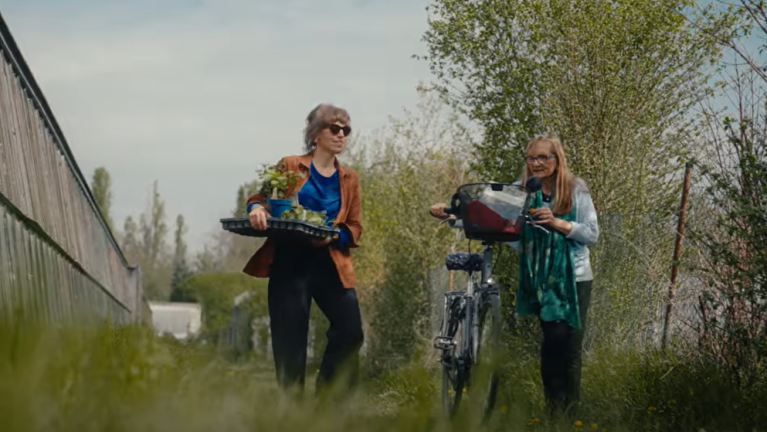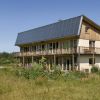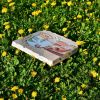Off to the fields
Die Kooperative in Frankfurt supplies city dwellers with organic vegetables – and motivates them to go out into the fields themselves.
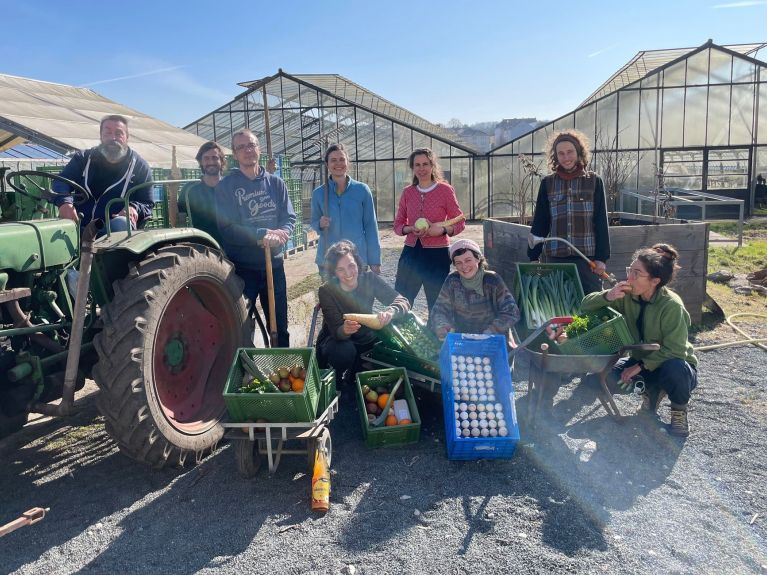
Between greenhouses, vegetable fields and new developments in the Frankfurt district of Oberrad, you’ll find the home of Die Kooperative. What you’ll see here is not a typical eco-farm, but a lively community project: fields run by the cooperative alongside plots for amateur gardeners. A cargo bike regularly sets off carrying boxes full of vegetables to be delivered in Frankfurt am Main and the surrounding area.
Die Kooperative was founded in 2018. “The two founders wanted to create a structure that allows people in the city to eat in a way that’s simple, sustainable and regional,” explains Karolin Munte, a board member of the cooperative.
Seasonal and regional: the concept of the harvest box
At the heart of the project is the so-called harvest box: a weekly delivery of seasonal organic vegetables, with the option to add fruit, honey, bread, eggs or juice. Die Kooperative supplies around 400 households in this way. The food comes from its own land and animals, as well as from partner farms in the region.
What ends up in the box doesn’t depend on members’ preferences. “You can’t order particular vegetables from us. We pack whatever’s in season,” says Munte. The range is deliberately limited: “We want people to go back to seeing food as something special – and to understand that it doesn’t grow in supermarkets. Instead of endless choice on the shelves, we focus on seasonal production.” The taste makes it worthwhile too: “If you only eat tomatoes when they’re actually in season, they taste completely different – much more intense,” says Munte.
Nothing goes to waste. To avoid food waste, Die Kooperative tries to tailor harvest volumes precisely to demand. If there is any surplus, it’s shared through food-sharing initiatives.
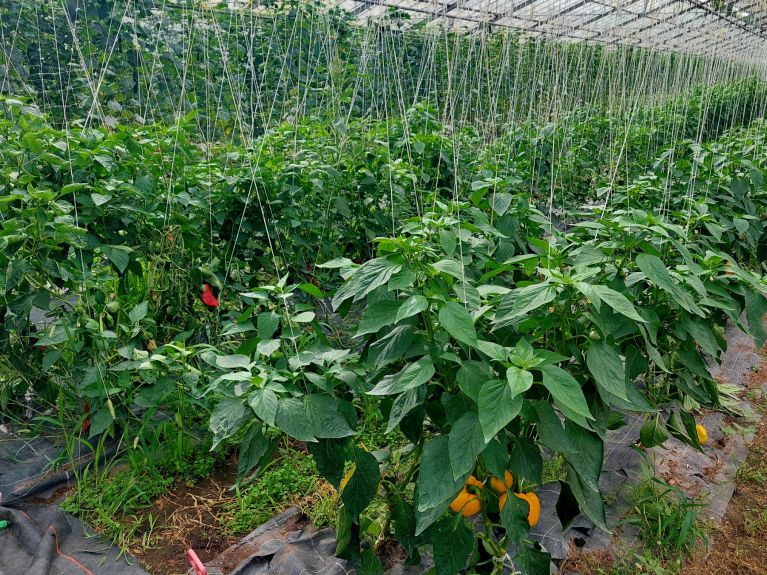
Shared garden plots build community
Alongside the harvest box, members can also get involved themselves – for example by renting a plot. Each spring, the plots are planted together, after which everyone takes responsibility for maintaining and harvesting their area. “At the start, we give planting tips and continue to support people throughout the season – either through our gardening team or through more experienced members,” says Munte.
The idea isn’t just ecological education but also connection: “We’re trying to create social spaces where people meet, get involved and learn from each other.”
Dieses YouTube-Video kann in einem neuen Tab abgespielt werden
YouTube öffnenThird party content
We use YouTube to embed content that may collect data about your activity. Please review the details and accept the service to see this content.
Open consent form